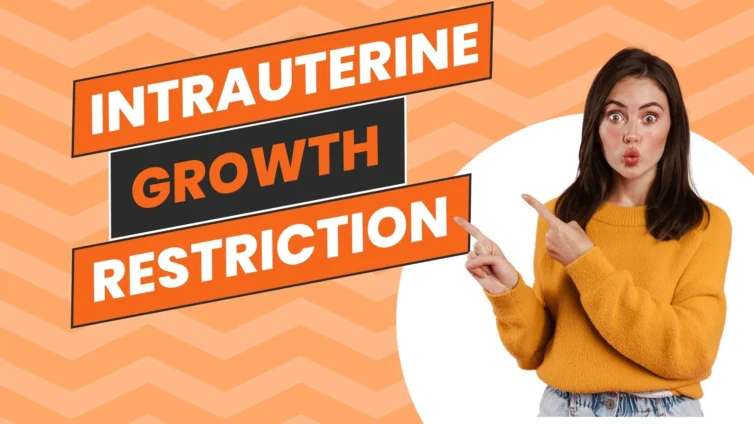
As an expectant mother, you want to do everything you can to ensure a healthy pregnancy and give your baby the best start in life. One crucial step in achieving this is by taking prenatal vitamins. These supplements are packed with essential nutrients that support your baby’s growth and development, making them a vital part of your pregnancy routine.
Why Are Prenatal Vitamins Important for a Healthy Pregnancy?
Prenatal vitamins are essential for promoting a healthy pregnancy and enhancing the baby’s health. Good prenatal care involves taking prenatal vitamins even before you get pregnant. Prenatal vitamins contain the essential nutrients that you and your baby need during this crucial time.
Getting the best prenatal vitamin is important, and it’s everything you need to know if you want to have a healthy pregnancy. Folic acid is one of the most important nutrients found in prenatal vitamins as it helps support the baby’s neural tube (embryonic brain and spinal cord) development. This nutrient is especially important during the first few weeks of pregnancy when the neural tube is forming.
Proper nutrition during pregnancy is crucial, and taking a prenatal supplement can help ensure you are getting the nutrients you need to support your and your baby’s growth and development. Prenatal vitamins are specifically designed to provide the essential vitamins and minerals that your body needs during pregnancy.
Key Vitamins and Minerals in Prenatal Vitamins

Prenatal vitamins are specially formulated to provide pregnant women with the essential vitamins and minerals they need for a healthy pregnancy and developing baby. Here are some key nutrients you can expect to find in prenatal vitamins:
| Nutrient | Function |
|---|---|
| Folate (folic acid) | Helps prevent birth defects of the baby’s brain and spine, and supports the baby’s growth and development |
| Iron | Helps prevent anemia in both the mother and baby, and supports the baby’s brain and red blood cell development |
| Calcium | Supports the baby’s bone and teeth development, and helps maintain the mother’s bone health |
| Vitamin D | Helps the body absorb calcium, supports the baby’s bone development, and may help prevent pre-eclampsia in the mother |
| Vitamin C | Supports the baby’s growth and development, and helps the body absorb iron |
| Vitamin B6 | Helps alleviate morning sickness and supports the baby’s brain and red blood cell development |
Remember, each brand of prenatal vitamin varies in its nutrient composition and levels. Your doctor, with their professional understanding of your needs, is best equipped to guide you on which prenatal vitamin is ideal for you.
The Role of DHA and Omega-3 Fatty Acids in Prenatal Health
DHA and omega-3 fatty acids are essential nutrients for a healthy pregnancy and the development of the fetal brain and eyes. DHA is a type of omega-3 fatty acid that plays a crucial role in brain development and cognitive function. Omega-3 fatty acids also support the healthy development of the eyes and nervous system.
The American Pregnancy Association advises that pregnant women intake a minimum of 300 mg of DHA daily.
| Nutrient | Importance | Food Sources |
|---|---|---|
| DHA | Supports brain and eye development, regulates mood | Fatty fish (salmon, tuna), fish oils, algae-based supplements |
| Omega-3 Fatty Acids | Improves fetal development, decreases risk of preterm birth | Fatty fish (salmon, tuna), fish oils, flaxseed oil, chia seeds, walnuts |
Studies have found that pregnant women who consume higher levels of omega-3 fatty acids have a lower risk of preterm birth and postpartum depression. Additionally, low levels of DHA have been linked to developmental delays and behavioral problems in children.
It is important for pregnant women to discuss their DHA and omega-3 fatty acid intake with their doctor and consider taking a prenatal supplement that contains these nutrients. As always, it is best to obtain nutrients from whole food sources whenever possible.
Benefits of Prescription Prenatal Vitamins

While over-the-counter prenatal vitamins are widely available, prescription prenatal vitamins have several advantages. These vitamins are specially formulated to provide the exact nutrients that pregnant women need and in the right amounts. Here are some of the benefits of prescription prenatal vitamins:
Reduced Risk of Birth Defects
Prescription prenatal vitamins contain higher levels of folic acid, iron, and other essential nutrients that can help reduce the risk of birth defects. Neural tube defects, for example, can occur in the first few weeks of pregnancy, often before a woman even knows she is pregnant. Taking prescription prenatal vitamins before and during pregnancy can help reduce this risk.
Support for Breastfeeding Mothers
Prescription prenatal vitamins are also beneficial for breastfeeding mothers. These vitamins help ensure that the mother is getting all the nutrients she needs to produce breast milk and support her baby’s growth and development.
Omega-3 Fatty Acids
Prescription prenatal vitamins may contain higher levels of omega-3 fatty acids, which are vital for brain and eye development in the developing fetus. These fatty acids also have benefits for the mother, such as reducing the risk of postpartum depression.
Guidance of a Healthcare Provider
Finally, prescription prenatal vitamins are often prescribed by doctors who can provide guidance on how to take them correctly and address any concerns or questions. If you have specific nutritional needs or health concerns, your healthcare provider can recommend a prenatal vitamin that is tailored to your individual needs.
Overall, prescription prenatal vitamins can provide pregnant women with the necessary nutrients required for a healthy pregnancy and baby. Consult your healthcare provider to determine the best prenatal vitamin for you.
Meeting Nutritional Needs During Pregnancy

During pregnancy, it is crucial to ensure that both the mother and the developing baby receive all the necessary nutrients for proper growth and development. Taking a daily prenatal vitamin is an excellent way to meet nutritional needs.
It is recommended to start taking a daily prenatal vitamin every day, even before getting pregnant. The first 12 weeks of pregnancy are particularly crucial as this is when the baby’s neural tube develops. Prenatal vitamins containing at least 400mcg of folate should be taken during this period to reduce the risk of neural tube defects.
In addition to folate, prenatal vitamins should contain other essential vitamins and minerals such as iron, calcium, and vitamin D. When taking a daily prenatal vitamin, it is important to avoid exceeding the recommended dosage. Consuming too many vitamins and minerals can be harmful to both the mother and the baby.
Natural Sources of Prenatal Nutrients
While prenatal vitamins are often recommended by healthcare professionals, Mother Nature herself offers a cornucopia of these crucial nutrients. From leafy greens to protein-rich legumes, the natural world provides an array of wholesome, nutrient-dense options for expectant mothers.
| Vitamins and Minerals You Need During Pregnancy | Sources |
|---|---|
| Folate | Dark leafy greens, beans, fortified cereals, and bread |
| Iron | Red meat, poultry, fish, beans, spinach |
| Calcium | Dairy products, fortified orange juice, leafy greens |
| Vitamin D | Fatty fish, fortified milk, sunlight |
Key Takeaways
1. Prenatal vitamins, packed with vital nutrients like folic acid, iron, and calcium, are crucial for a healthy pregnancy.
2. DHA and Omega-3 fatty acids in prenatal vitamins support fetal brain and eye development.
3. Prescription prenatal vitamins offer precise nutrient quantities and extra benefits such as reduced risk of birth defects.
4. Starting daily prenatal vitamins before pregnancy is recommended, with natural sources also being an excellent way to obtain these nutrients.
Final Thoughts
In conclusion, prenatal vitamins are an invaluable tool in safeguarding the health and development of both mother and baby during pregnancy. From supporting neural tube formation to aiding bone development and preventing anemia, these supplements are more than just a daily routine—they’re an investment in your baby’s future. It’s important to remember that while vitamins are a great way to supplement your diet, they don’t replace a balanced, nutrient-rich diet. So, don’t forget to consult with your healthcare provider about the best prenatal vitamins for you, and embrace a diet rich in fruits, vegetables, lean proteins, and whole grains for a healthier pregnancy and beyond.
If you found this article helpful, please share it with your friends on WhatsApp, Facebook, or Twitter using the buttons above or below the article.
Frequently Asked Questions (FAQs)
What are prenatal vitamins?
Prenatal vitamins are specially formulated supplements containing essential vitamins and minerals needed to support a healthy pregnancy.
What do prenatal vitamins contain?
Prenatal vitamins typically contain higher levels of folic acid, iron, and calcium than a regular multivitamin. It may also contain other important nutrients like vitamin D, omega-3 fatty acids, and iodine.
Do I need to take prenatal vitamins if I eat a healthy diet?
Even if you have a healthy diet, it can be challenging to get all the necessary nutrients from food alone. Prenatal vitamins can help fill the nutritional gaps and ensure both you and your baby are getting the nutrients you need.
When should I start taking prenatal vitamins?
It is recommended to start taking prenatal vitamins as soon as you start trying to conceive. If you find out you are pregnant and haven’t started taking a prenatal vitamin yet, it is still important to start as soon as possible.
Can prenatal vitamins cause nausea?
Some women may experience nausea from taking prenatal vitamins. If this occurs, try taking them with food or before bed. If the nausea persists, talk to your healthcare provider about switching to a different prenatal vitamin.
How much folic acid do I need?
It is recommended that women of childbearing age consume 400-800 micrograms of folic acid per day. During pregnancy, the recommendation increases to 600-800 micrograms per day to help prevent neural tube defects.
Can prenatal vitamins be taken with other medications?
Prenatal vitamins are generally safe to take with other medications, but it’s always best to talk to your healthcare provider about any concerns or questions you may have.
Do I need a prescription for prenatal vitamins?
While there are over-the-counter prenatal vitamins available, it is recommended to talk to your doctor about which prenatal vitamin is best for you and whether a prescription is necessary.





